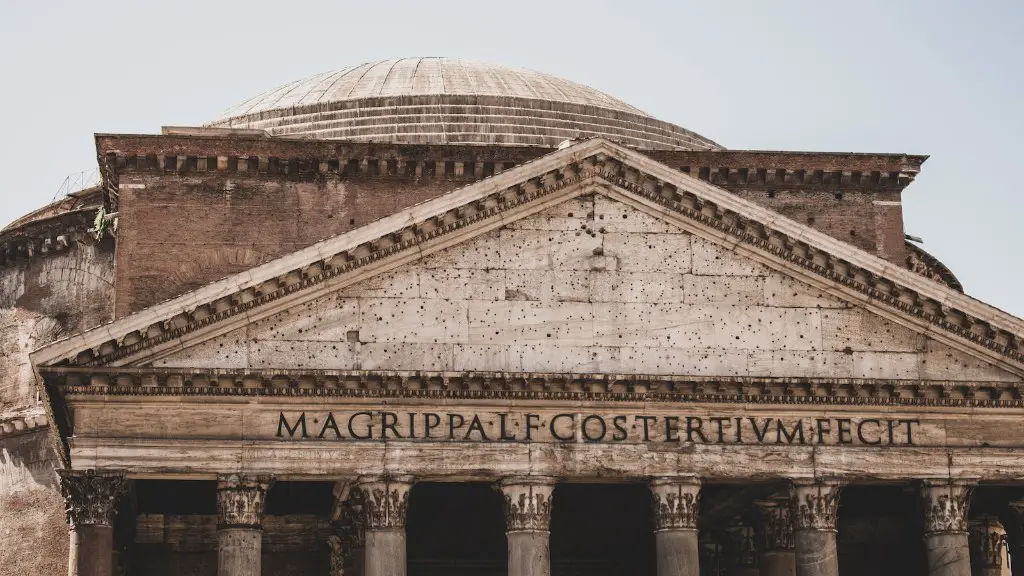In the ancient world of Rome, slaves were incredibly prominent figures due to their immense physical and mental contributions to both daily life and the ever-changing political scene. Across various provinces, slaves were obtaining riches, establishing long lasting business empires, and even attaining prominent positions of influence within the Senate. Why were slaves so relevant to ancient Rome? It could be argued that slavery was a key factor in the longevity of the Roman Empire, for the following reasons.
Slaves played an essential role in the labor force of Rome. This enabled the Romans to accomplish terrifying construction projects, create proficient forms of military discipline, and engineer massive fleets of ships. Their efforts created lasting monuments such as the Colosseum and the Appian Way. Without slaves, these feats might have been impossible to undertake.
The age of slave trading was a key factor in the availability of labor. Rome was able to make use of conquered nations to obtain personnel quickly and cheaply. An elaborate organization across the empire allowed slavery to reach its apex. Writing laws to govern the practice caused a labyrinth of regulations, which ultimately increased its credibility within the ancient Roman culture.
Slaves also played a major role in the ever-important agricultural industry. It was common for large farms to employ slaves as gardeners and animal caretakers. This enabled Roman families to become self-sustaining and to look after their own needs. Eventually, slaves were used to cultivate vineyards and olive groves for the mass production of olive oil and wine.
In Rome, it was not uncommon for slaves to be freed and even promoted to some of the most influential positions available. Slaves could become plenipotentiaries and overt rulers. They could also take on positions in the Senate as counselors, teachers and scholars. In this sense, slaves became indispensable to the development of Rome’s culture, laws and values.
The enslaved people of Rome also played a key role in its infrastructure. Slaves were the primary laborers responsible for building roads, constructing buildings, digging wells and hauling supplies. By providing these tasks, slaves allowed Roman communities to spread out and become more diverse. This diversity allowed the Roman masses to gain a better understanding of their government and the world that they lived in.
The Role of Slaves in Roman Law
Throughout the Roman Empire, slaves were considered valuable assets and had to obey Roman laws. Slavery abided by manumission, or the ability for a slave to become free through either payment or service. To become a slave, one had to be born into slavery, or incarcerated as a convict. The owner could either elect to offer a slave as a gift, have them earn their status, or give them away as a wager.
There were legal limitations to being a slave, but there were also privileges that enabled the existence of a stable life and the prospect of the manumission. Slaves were generally provided with the necessities and had to obey owners. But in some states, even those obliged to servitude had to be given very specific contracts and could not be subject to arbitrary punishments or abuse.
The Effects of Slavery on Rome
Slavery had a hugely positive effect on Rome, paving the way for the growth and diversification of the Roman Empire. It allowed the spread of Roman civilization and gave the people of Rome access to various raw materials. Without it, Rome would have been an entirely different place.
However, despite its benefits, slavery had some negative implications. Slaves occasionally revolted against their masters, leading to violent uprisings, unrest amongst the people, and a breakdown in the laws of the state. This could lead to civil war, poverty and continued instability in the Roman Empire.
Slave Resistance and Movements
Slaves shaped their own lives, as well as the lives of those around them, through several forms of organized resistance. Slaves were regular occurrences in the gladiatorial games, and these were sources of entertainment for Roman citizens. Rebellion against the Colosseum, or the practice of mock justice, eventually led to the successful emancipation of slaves.
Slaves in Ancient Rome could also form guilds and societies, current primarily among artisans and craftsman. Through these societies, slaves formed membership and amplified their collective voices. Slaves had the chance to take part in bargaining, trading and buying materials, and protecting their own interests.
Slavery as an Institution
Whether slavery was viewed as a necessary part of society or as a corrupt form of labor, it was fully accepted as an institution during Ancient Rome. Slaves offered a wide range of services and job possibilities; they were writers, engineers and artisans. In the latter years of the Roman Empire, slaves also took on greater roles in the army, as well as within the political tasks of the Senate.
It is clear that Ancient Rome could not have functioned without slaves, but the power and influence they held over Roman culture, politics and lifestyle still remains of fascination today. Ultimately, even though the era is long gone and forgotten, the legacy of slavery still looms large over the legacy of Ancient Rome.
The Struggle for Slaves’ Rights
The fight for slaves’ rights began in Rome over two-thousand years ago and continued into the Common Era. Despite the revolution in many forms of slavery, some nations still remain unfree, political stratification affected by slavery, or enforced labor systems still remain a threat to laborers and citizens across the world.
During antiquity, Rome had long been entangled in the struggle between the different philosophies regarding slavery. By opposing those advocating the practice, slaves and those degraded to slavery by debt or war were able to gain much needed freedom, even if their emancipation was only partial. For that reason, it’s important to acknowledge the work that was done to liberate those stuck in slavery and to honor their fight for rights and freedom.
The Fate of Ancient Slaves
The eventual fate of slaves in Ancient Rome varied greatly, as the demand for labor consistently altered over time. Some slaves were able to use their situation to complete manumission and gain full freedom, some left the city and their masters behind, and still others were allowed to make a career for themselves within the Roman Empire. Regardless of the fate of those in servitude, the life of a slave in Ancient Rome made a lasting impact on both the individuals, and the times in which they lived.




